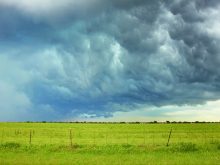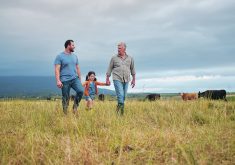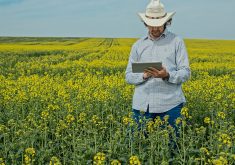Farm families should keep three things in alignment when managing the business: business direction, financial performance and management structure.
This is nothing new because these functions have affected farms for decades. What is new is the importance of more proactively understanding them and monitoring their alignment as the farm moves through its business and personal life cycles.
This article focuses on business direction.
What we are talking about is strategic direction. It is really just a technical way of saying that farm families should work to come to a consensus about where they see the farm and family headed. Where do they want or need to be in the future?
Read Also

Farming Smarter receives financial boost from Alberta government for potato research
Farming Smarter near Lethbridge got a boost to its research equipment, thanks to the Alberta government’s increase in funding for research associations.
Usually the “future” is defined as being in a five-year horizon.
There are two kinds of futures: one that happens on its own and the one shaped by your work.
I think most would choose the latter, although it takes effort and a decision not to take the easy route of letting things unfold. It could require substantive change.
Most families have a general idea of where they’re headed.
The more formal they can make that general idea, by writing it down and communicating it, the better it is, especially when there are multiple partners and/or generations involved in the business.
Admittedly, the future is clouded. There are lots of variables, some that can be controlled and others that can’t.
However, it is far easier to achieve your goal if everybody is headed in the same direction.
Farms and farm families are where they are as a result of past events and decisions. The decisions were likely made with the best intentions at the time.
It’s interesting to reflect back to what a farm looked like 10 or more years ago and see how past decisions helped it evolve into what it is today.
When considering the future, I think it’s fair to say that the majority would like the farm to stay in the family, possibly with multiple partners and/or generations involved.
But what about the scenario where everybody is not in agreement? This isn’t any easier.
What happens when family members who are actively involved in the business do not envision the same future?
How long do families stay farming together when they have different ideas of what their futures look like?
Such disagreement could come from a specific issue or incident, but usually it is a slower progression of differing opinions.
Families with diverging views usually continue to try to work together the best they can until at some point things come to a head.
It would be much better if the need for change could be realized with as little conflict as possible.
Unfortunately, I run into situations where there is no longer any desire to “get together for Thanksgiving.”
It’s better if farm families can proactively work together before relationships are damaged.
This means having the “business direction discussion,” which should be done as soon as family members begin to realize they see different futures.
If disagreement leads to break up, there can be substantial costs, human and financial. Break-ups can be difficult if not impossible.
Breaking up a multi-stakeholder farm business into smaller pieces rarely generates as much profit as individual structures.
Time, careful analysis and planning are required.
If you find yourself or your family in a situation where people envision different futures, the best outcome will be achieved by dealing with realities sooner rather than later.
I strongly encourage farm families to talk to business advisers such as accountants, lawyers and management consultants to help them work through the process.
Terry Betker is a farm management consultant based in Winnipeg. He can be reached at 204-782-8200 or terry.betker@backswath.com.
















